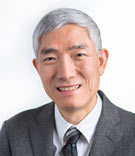Nov
09

Date: 9 November 2022
Time: 9:30 AM ET (New York Time)
Title: Neural Spectrospatial Filter
Registration | Full webinar details
Abstract:
How does this conceptually simple approach perform relative to commonly-used beamforming techniques on different array configurations and in different acoustic environments? We examine this issue systematically on speech dereverberation, speech enhancement, and speaker separation tasks. Comprehensive evaluations show that multi-channel complex spectral mapping achieves speech separation performance comparable to or better than beamforming for different array geometries, and reduces to monaural complex spectral mapping in single-channel conditions, demonstrating the versatility of this new approach for multi-channel and single-channel speech separation. In addition, such an approach is computationally more efficient than popular mask-based beamforming. We conclude that this neural spectrospatial filter provides a strong alternative to traditional and mask-based beamforming.
Biography:

Dr. DeLiang Wang (F’04) received the B.S. degree and the M.S. degree from Peking (Beijing) University and the Ph.D. degree in 1991 from the University of Southern California all in computer science.
Since 1991, he has been with the Department of Computer Science & Engineering and the Center for Cognitive and Brain Sciences at The Ohio State University, where he is a Professor and University Distinguished Scholar.
Dr. Wang received the U.S. Office of Naval Research Young Investigator Award in 1996, the 2008 Helmholtz Award from the International Neural Network Society, the 2007 Outstanding Paper Award of the IEEE Computational Intelligence Society and the 2019 Best Paper Award of the IEEE Signal Processing Society. He is an IEEE Fellow and ISCA Fellow, and serves as Co-Editor-in-Chief of Neural Networks.
